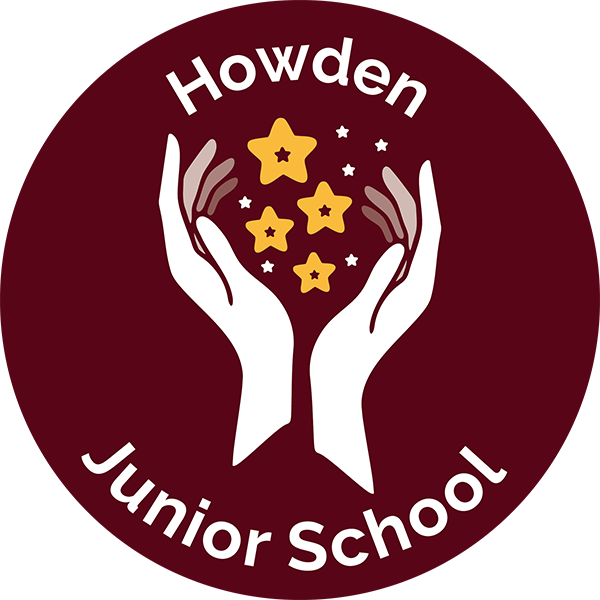- Art
- Assemblies
- Computing
- Design & Technology
- Forest School
- Geography
- History
- Languages
- Maths
- Music
- Our Entitlement Curriculum
- Physical Education & Sport
- PSHE
- Reading
- Religious Education
- Science
- Writing
Howden Junior School makes provision for personal, social, health and economic education (PSHE), drawing on good practice. We believe that education in PSHE and citizenship enables children to become healthier, more independent and more responsible members of society. We encourage our pupils to play a positive role in contributing to the life of the school and the wider community. In doing so, we help to develop their sense of self-worth. We teach them how society is organised and governed. We ensure that the children experience the process of democracy through participation in the school council. We teach children about their rights and about their responsibilities. They learn to appreciate what it means to be a positive member of a diverse and multi-cultural society. Indeed, the teaching of PSHE and citizenship helps in many ways to meet the objectives set out in The Children’s Act 2004 (‘Every Child Matters’) – that children be healthy, stay safe, enjoy and achieve, make a positive contribution, and achieve economic well-being’.
Intent
All schools must provide a curriculum that is broadly based, balanced and meets the needs of all pupils. Under section 78 of the Education Act 2002 and the Academies Act 2010, a PSHE curriculum:
- Promotes the spiritual, moral, cultural, mental and physical development of pupils at the school and of society, and
- Prepares pupils at the school for the opportunities, responsibilities and experiences of later life.
An amendment to the Children and Social Work Act 2017 made Relationships and Health Education at primary; and Relationships, Sex, and Health Education at secondary, statutory subjects. This became active in September 2020.
Implementation
Objectives/Pupil learning intentions
Our objectives in the teaching of PSHE and citizenship are for all of our children:
- to know and understand what is meant by a healthy lifestyle;
- to be aware of safety issues;
- to understand what makes for good relationships with others;
- to have respect for others;
- to be thoughtful and responsible members of their community and their school;
- to become active members of our democratic society;
- to develop self-confidence and self-esteem;
- to make informed choices regarding personal and social issues;
- to develop good relationships with other members of the community.
We emphasise active learning by including the children in discussions, investigations and problem-solving activities. We encourage the children to take part in a range of tasks that promotes involvement in helping other individuals or groups less fortunate than themselves. We organise classes in such a way that pupils are able, through discussion, to set agreed classroom rules of behaviour, and resolve any conflicts. We offer children the opportunity to hear visiting speakers, such as health workers, police and local clergy, whom we invite into the school to talk about their role in creating a positive and supportive local community.
We teach PSHE in a variety of ways. Sometimes, e.g. when dealing with issues in drugs education, we teach PSHE as a discrete subject. On other occasions, we introduce PSHE topics through teaching in other subjects. For example, when teaching about local environmental issues in geography, we offer pupils the opportunity to find out who is responsible for the maintenance and upkeep of local parks and cycle paths. Also, as there is a large overlap between the programme of study for religious education and the aims of PSHE, we deliver a considerable amount of the PSHE curriculum through our religious education lessons.
Howden Junior school follows the Jigsaw PSHE programme which brings together Personal, Social, Health and Economic education, emotional literacy, social skills and spiritual development. As a school, we have chosen to follow the Jigsaw scheme as their curriculum covers all aspects of the national curriculum requirements.
